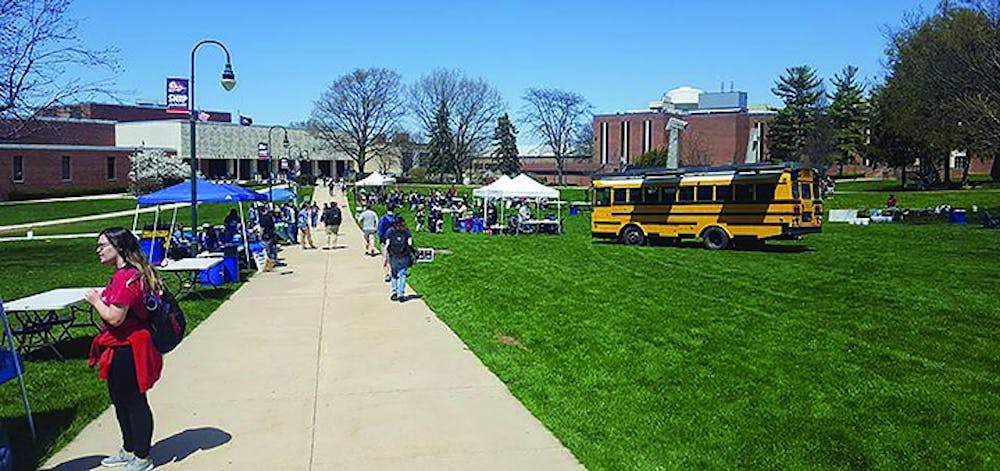Shippensburg University’s Environmental Steering Committee encouraged students to give back to the community during StewardSHIP Week, with the goal of increasing student awareness of the problems facing the environment.
StewardSHIP Week is held each year and typically coincides with the celebration of Earth Day, according to geology professor Sean Cornell. This year’s festivities, which ran from April 19-28, included tree plantings along Burd Run, a clean-up of Michaux State Forest and spring planting at the SU campus farm.
“That’s what we’re about here, to learn and serve,” Cornell said. “We’re not just about serving in the future, we’re about serving right now.”
This is the third annual week that the activities were held in a week-long span, but have existed separately for much longer.
This year, SU’s chapter of the Public Relations Student Society of America (PRSSA) helped promote the event, with the Students for Environmental Action and Sustainability (SEAS) partnering to launch Thursday’s Earth Day celebration.
The StewardSHIP celebration kicked off on April 19 with a table in the Ceddia Union Building, where more than 260 people took SU’s sustainability pledge.
Each student that takes the pledge promises to serve the community by using resources wisely and becoming informed on the resources, or lack thereof, in the surrounding area, according to ship.edu. Cornell emphasized that the committee is trying to make opportunities available to students who want to create a positive environmental impact.
“By everyone doing one thing, that adds up,” he said. “When [students] get connected, they understand the connection. The more you’re connected to nature, the more helpful you are.”
Cornell said one way students can improve their ecological footprint is by carefully choosing what foods they consume, based on the amount of energy certain foods release.
For example, choosing grass-fed over grain-fed beef can significantly decrease the amount of energy that is released by consumers. Other lifestyle changes, like carpooling and taking shorter showers, are successful in saving resources when a large number of people make an effort, according to Cornell.
He added that aspects of every day life are all connected to environmental service in some way.
“Every discipline is connected to stewardship,” Cornell said.
One of the main environmental problems on campus, Cornell said, is students’ lack of empathy for environmental issues, mainly because they do not understand sustainability.
“Students are apathetic,” he said. “We know from research that SU students tend to be blind until we take their blinders off.”
In addition to the work done by the Environmental Steering Committee, SU partners with the Center for Land Use and Sustainability to provide students with hands-on volunteer experience throughout the country.
Cornell described service as the connector that makes the other gears of the university operate.
“Sustainability is the goal — we want to ensure social justice,” he said. “Stewardship is about the choices we make.”
StewardSHIP Week concluded Friday with an Arbor Day tree planting around campus.
For more information on how you can become more sustainable or get involved, visit ship.edu/sustainability/stewardship_week/.




The Slate welcomes thoughtful discussion on all of our stories, but please keep comments civil and on-topic. Read our full guidelines here.